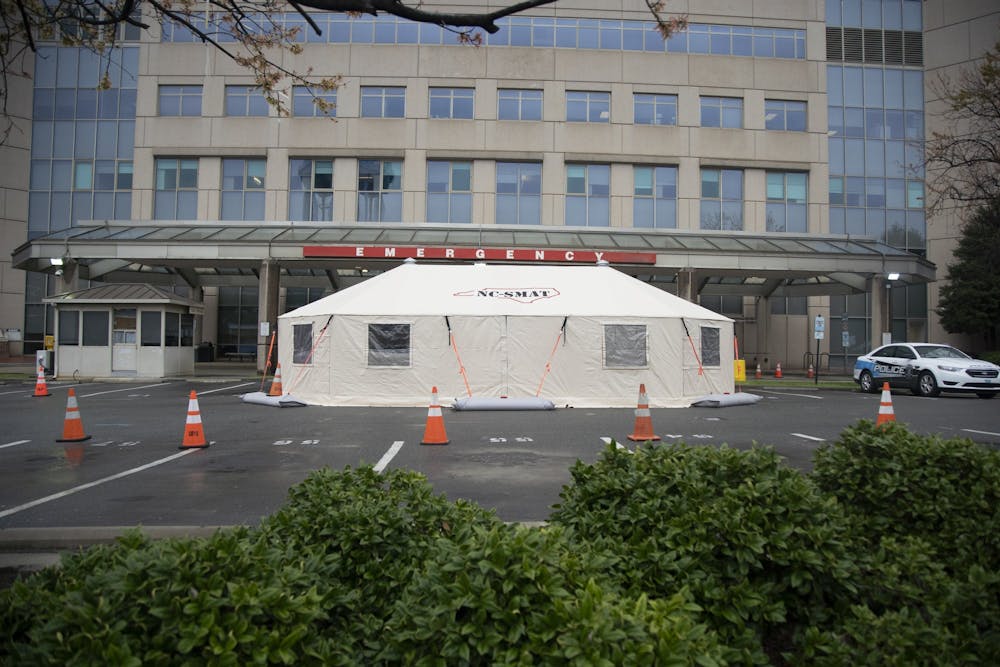Dr. Thomas Bice, an assistant professor at UNC’s School of Medicine and the medical director for UNC Health’s Division of Pulmonary Diseases and Critical Care Medicine, was among the first physicians at UNC Hospitals to take a special shift in the intensive care unit. He said a safety-driven reduction of shift staffing from five to one has put additional pressure on ICU doctors.
“For the COVID ICU patients, it was just me,” Bice said. “In addition to the usual thinking about critical care that I had to do, we all had to take on some additional administrative duties, like fielding phone calls or writing notes or writing orders, that are more along the lines of what often the residents take care of.”
Although this setup is not uncommon in smaller hospitals, like the UNC Hospitals Hillsborough Campus where he sometimes works, Bice said the change in pace may be stressful for other attending physicians.
“It’s a big job,” he said. “It’s not terribly different than what physicians do in the community, in private practice, but it’s a different environment than all of my fellow attendings are used to.”
Getting more equipment
In a March 30 executive order, Gov. Roy Cooper authorized donations and transfers of personal protective equipment and other supplies from the state to health care providers.
“This order helps speed more personal protection equipment to frontline healthcare workers,” Cooper said in a press release. “In addition, it allows local governments and students to get other equipment they may need."
Thomas Hughes, a communications specialist for UNC Health, wrote in an email the group’s supply teams were working to secure additional PPE.
“We continue to prepare for more patients, and to ensure that all our hospitals are ready and equipped to handle this pandemic,” Hughes said in the email. “UNC Health has the supplies and resources it needs at this time, but we are fully aware of the situation at hospitals in New York and elsewhere.”
Bice said UNC Health now requires doctors treating COVID-19 patients to wear extensive PPE. He said the laboriousness of removing the equipment, which includes a gown, gloves, a N-95 mask and a face-shield, has forced staff to be extra efficient and consolidate many care steps into one visit.
”We have to do that for any patients we are testing and ruling out in addition to any patient we for sure know has the disease because it’s just not worth putting your own health on the line in the setting of an unknown,” he said.
To get the day's news and headlines in your inbox each morning, sign up for our email newsletters.
Looking forward
According to a model from the University of Washington's Institute for Health Metrics and Evaluation, North Carolina is expected to reach peak need for COVID-19 treatment resources on April 26. Although much about COVID-19 remains uncertain, Gabryel said UNC Health is prepared to care for its patients.
“Our response is evolving constantly, based on the ever-changing situation,” Gabryel said in an email. “We are planning for the worst, but hoping for the best.”
@DTHCityState | city@dailytarheel.com



